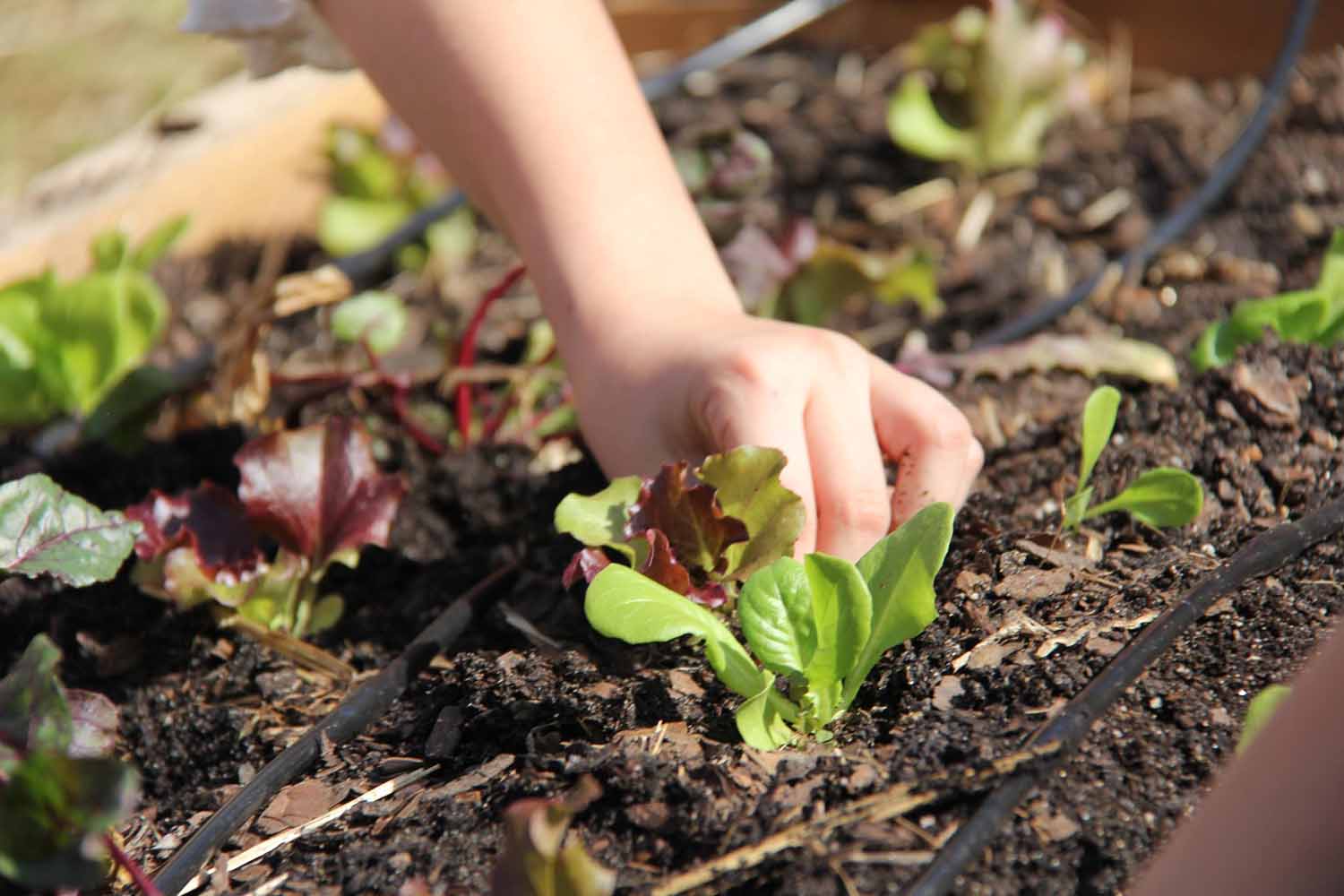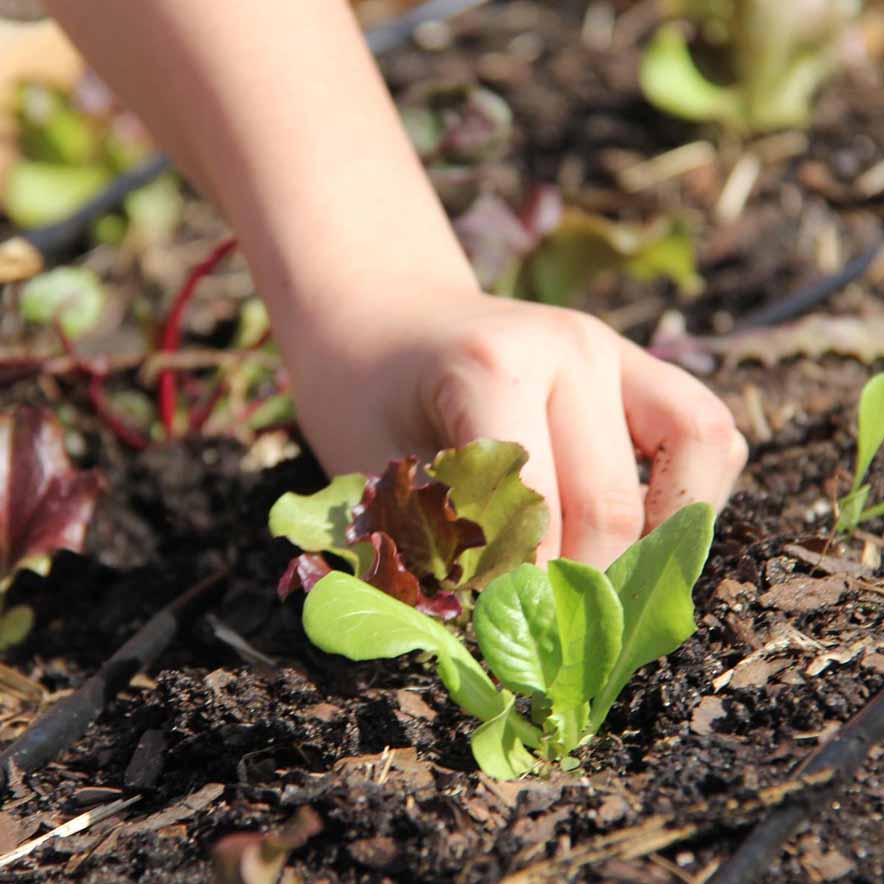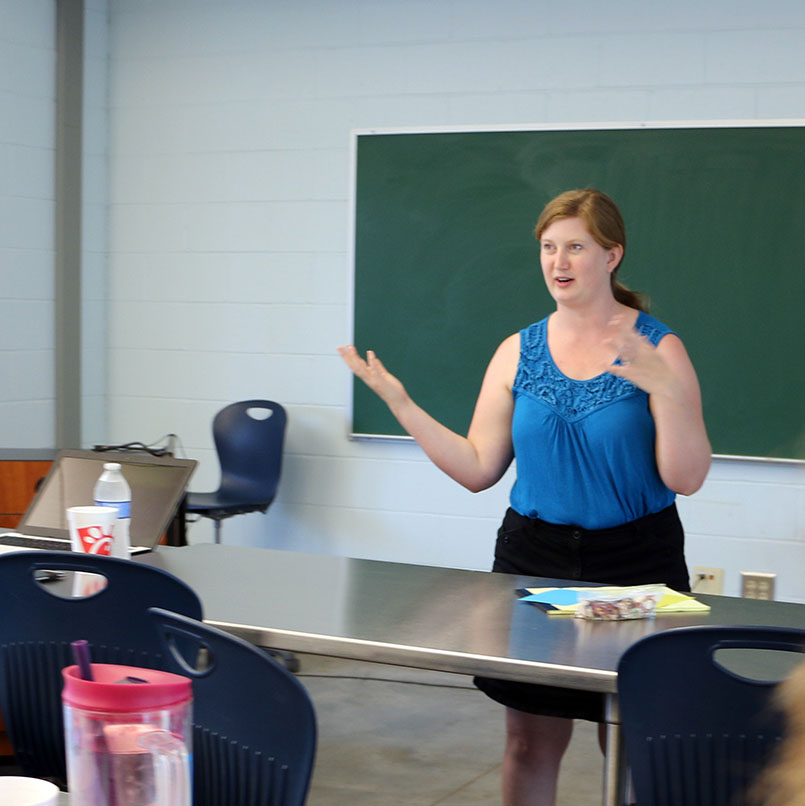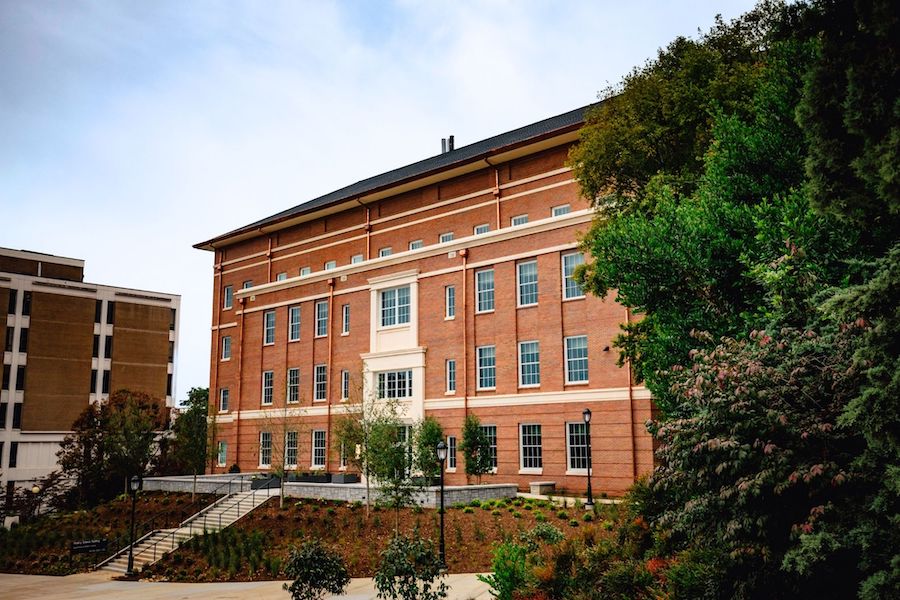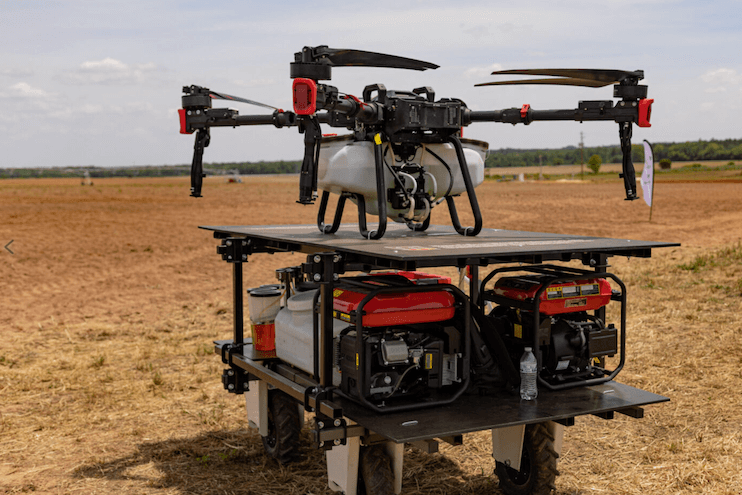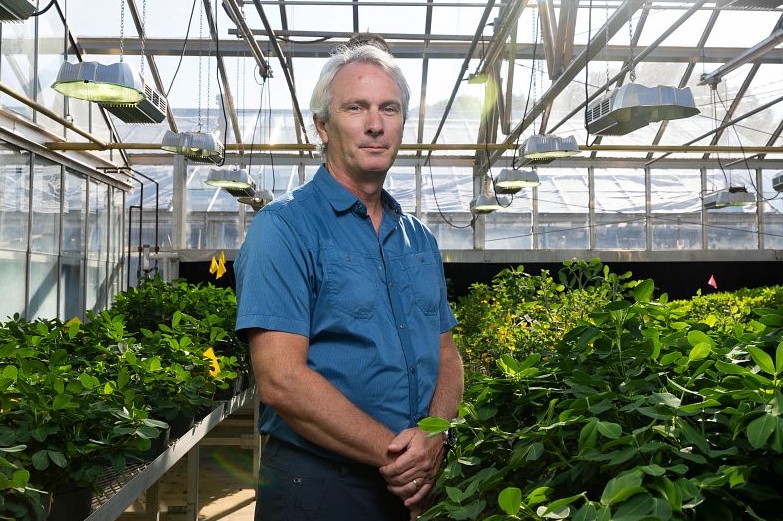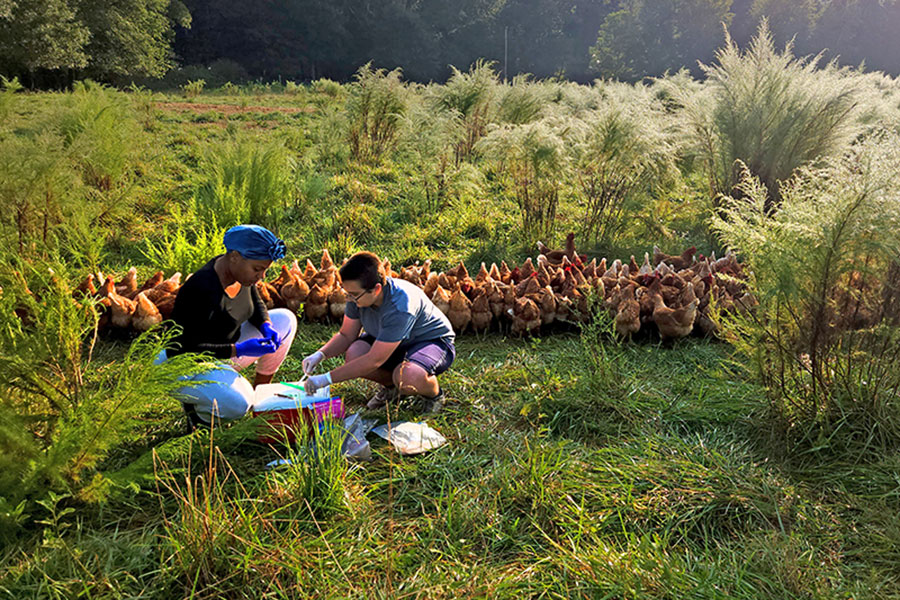The idea and principles of Farm to School programs have been around for more than two decades, but it took nearly half that time for adoption and funding to garner growth and wider attention.
Today, teaching gardens dot the landscapes of schools across Georgia. With hands-on support from University of Georgia Cooperative Extension and other community partners, they are blooming into success, and evaluation research from the College of Agricultural and Environmental Sciences shows other positive social implications.
Nutrition, wellness and economic benefits aren’t the only benefits of Farm to School programs, says Jennifer Jo Thompson, director of UGA’s Sustainable Food Systems Initiative. These programs can help students further engage with learning and their peers.
“Farm to School can create new ways for students to engage with their school day in which they can have hands-on, physical interaction and, in some cases, shake off resistance to traditional schooling,” she said. “It’s also a way for children to interact with one another in a different way, rather than in their usual cliques. Because many kids approach it as a novel and unfamiliar experience, they don’t come with the usual identity baggage — they come uncertain and curious. Our research shows that Farm to School allows kids to bond with others they might not usually connect with.”
The programs also promote agriculture as an important activity and as a profession in the state, Thompson notes.
“Connecting students through farmers and gardens means we are raising a generation of kids who will have the knowledge to make future policy decisions about food and agriculture,” added Becky Griffin, the community and school garden coordinator for UGA Extension.
Well-rounded education
While the core of Farm to School programs are rooted in buying, producing and educating about local food and nutrition, it has become a way to incorporate all types of learning and subjects.
“We can tie it into all types of curriculum — geography as in how did these beans end up in Georgia, business as in how much yield did we get per square foot, and in literature by writing poetry about the garden,” said Griffin, who helps support Extension agents in their local outreach. “Some schools partner even with local water authorities to teach about water quality and irrigation, creating rain barrels and getting students to serve as water-quality monitors.”
And the programs aren’t just useful in urban or suburban areas. “Even in counties that are largely row crop counties, school gardens are still really effective because they grow crops that aren’t traditionally grown on those farms,” explained Griffin.
Collaboration is key
Coordinating local food purchasing and cultivating gardens — in addition to applying for grants — can be a daunting task for school staff. Griffin and Thompson agree — don’t try to start programs alone.
“My No. 1 piece of advice is to have as many people interested and invested as possible. A single teacher is going to get overwhelmed — it’s just not sustainable,” Griffin said.
One of the biggest challenges is the cost of someone who can provide dedicated support, because teachers are already stretched thin, Thompson said.
“It’s a no-brainer to put support in these programs, the challenge is it doesn’t always fit neatly into the traditional education box,” Thompson said. “It requires creativity and a team, administrative support and partnering with the facilities and grounds crews. It requires a lot of dedication. But the teachers who we work with see a lot of benefit, not only in their teaching, but seeing how students engage with learning.”
Funding, materials and training
Four Georgia counties — Dougherty, Newton, Savannah-Chatham and Ware — and two state agencies received USDA grant funding this year for Farm to School projects.
While grant resources have increased in recent years, some school systems have also turned to local support. Barrow County began a Farm to School Booster program with local organizations to raise money and resources. It’s also a way to bring the community together, according to Alicia Holloway, UGA Extension Agriculture and Natural Resources agent for the county.
“A lot of our small-scale farmers got into it for the community aspect, so I think a lot of them want to be engaged in that system and setting,” she said.
UGA’s Grow It Know It program in Athens-Clarke County schools, which is coordinated by Wick Prichard from UGA Public Service and Outreach, has also hosted teacher trainings in partnership with Barrow County.
“The teachers really understood the ‘why’ of Farm to School with the food system and nutrition and learning about food supply, but they didn’t have the horticulture background. They also just needed supplies — teachers have a lot to do already,” Holloway said.
Extension ready to help
Whether it’s sharing curricula and publications, giving planting recommendations or organizing volunteers to help with weeding, Extension offices are a critical resource for many teachers and school gardens. Extension agents know the farmers in the county, so they’re a good way to connect farms with schools, said Griffin.
“Extension is that connector with the producers, the Master Gardener volunteers, with nutrition education in the community — I’d say a lot of our most successful programs are in counties where Extension is involved,” said Thompson. “They have the flexibility to be responsive to the needs of the school districts as they emerge and Extension is really good at making those connections.”
A panel of five UGA Extension agents will present how the organization can partner with communities for impactful events and programming at the Georgia Organics Farm to School Summit at 4:30 p.m. April 27. The summit, which will be held April 27 to May 1, also features UGA presenters Wick Prichard, coordinator of Grow it Know It, and Caree Cotwright, assistant professor of foods and nutrition and doctoral students from the Childhood Obesity Prevention Lab in the College of Family and Consumer Sciences.
For more information or assistance from your local Extension office, visit extension.uga.edu/county-offices.

